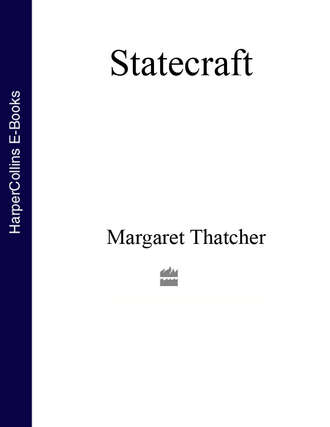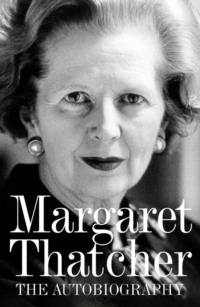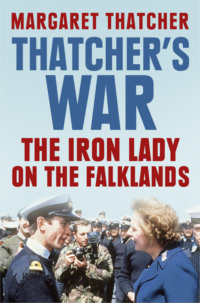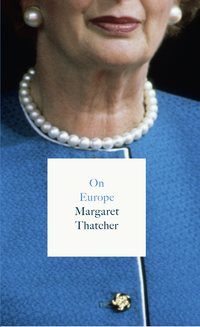
Полная версия
Statecraft
President Putin’s personality and background have been the subject of a large amount of speculation and debate ever since it appeared certain that he would be master of the Kremlin. We know the basic facts; the difficulty is to be sure of what to make of them. Vladimir Putin fulfilled his childhood dream of joining the KGB, the Soviet secret police, in 1975 at the age of twenty-two. He spent the late 1980s working alongside the East German secret police, the Stasi, among other things spying on NATO (as he disclosed in a book-length interview in March 2000). In the early 1990s he returned to his native St Petersburg, first to work at the university and then joining the administration of the late Anatoly Sobchak, the reformist but allegedly corrupt mayor of St Petersburg. In 1996 Mr Putin was brought to Moscow to be Deputy Chief Administrator in the Kremlin. In 1998 he was appointed head of the Federal Security Bureau (FSB), the KGB’s successor. He then moved from Secretary of the President’s Security Council to become Prime Minister in August 1999, succeeding Mr Yeltsin the following March.
All of which tells us practically nothing; indeed, given Mr Putin’s background in a profession where deceit and disinformation are all it may be less than nothing. It is always important in matters of high politics to know what you do not know. Those who think they know, but are mistaken, and act upon their mistakes, are the most dangerous people to have in charge.
Britain’s current Prime Minister certainly felt no inhibitions about pronouncing judgement on Mr Putin. He enthusiastically described the then Acting President as a ‘moderniser’ and offered to allow him to benefit from the expertise of the Downing Street Policy Unit. Mr Blair stated as well that Mr Putin ‘believes in a Russia which is ordered and strong but also democratic and liberal’.
A good deal of this was wishful thinking. Western leaders looked forward to dealing with a Russian leader who was healthy, sober, predictable and presentable. And they therefore hoped against hope that they were also dealing with a reforming democrat. It was, indeed, possible that such a person might have emerged from the stable of the KGB. But it was equally possible, and perhaps more probable, that Vladimir Putin was closer to the model of that other ex-KGB chief who became President, Yuri Andropov – hailed by the West at the time as a pro-Western liberal because he liked jazz and drank Scotch, ignoring the fact that he had also been a central figure in the brutal suppression of Hungarian freedom in 1956. Shortly before his election, Mr Putin solemnly unveiled a plaque to Andropov in the KGB’s old Lubyanka headquarters. That was not, all things considered, a reassuring sign.
Since then a clearer, though far from unambiguous, picture of Mr Putin’s presidency has been emerging. Its central approach is to create a strong state so as to restore order. For all its ominous overtones, that is what Mr Putin means by his oft-repeated phrase a ‘dictatorship of law’. His view, like that of probably most Russians, is that the Gorbachev and Yeltsin years saw authority drained away from central institutions to the benefit of different selfish interests, such as financial oligarchs, the mafia and regional bosses. In the chaos and corruption that have followed, the Russian people have lost out and Russia itself has been humiliated. Thus populism and patriotism have provided the main themes of Mr Putin’s campaigns. And he has been remarkably successful, winning a mandate of 53 per cent of the electorate and continuing – as of now – to enjoy widespread support.
In some respects, that is a programme with much to recommend it. Freedom without order is, indeed, mere anarchy. While Russia’s society, economy and politics are heavily criminalised there is no prospect for lasting recovery. Government everywhere does need to be strong in carrying out its essential tasks, and particularly so when the obstacles are as formidable as in Russia.
But government in a free society must also be limited in size and scope; it must not intrude into those aspects of life which are by rights private; and, above all, it must uphold and abide by, not undermine or override, the law. The call for ‘strong’ measures and ‘strong’ men is often an all too well-known preliminary to some kind of dictatorship.
How does Mr Putin’s programme measure up to this? Perhaps the most obvious feature of his analysis is its realism. He does seem to understand that Russia is in dire straits and that more of the same – whether the ‘same’ is communism or mafia-controlled quasi-capitalism – is not a viable option. In his State of the Nation Address to the Russian Federal Assembly in July 2000 he spoke in sombre tones about the country’s parlous state – its demographic decline which (he said) ‘threatened the nation’s survival’, the fact that the recent spurt of economic growth was unsustainable while structures were unreformed, and that ‘a considerable segment’ of that economy was in the hands of the criminal underworld. Mr Putin set out a programme of free-market reforms in language which sounds convincing – calling for lower taxes, less government interference and more competition. And some of this programme has since been implemented. The President has surrounded himself with at least some people who genuinely understand and believe in that programme.* Above all, he appears to have grasped that reform programmes are not simply a means of extorting fresh loans from gullible Westerners. He sees policies for economic revival as vital to prevent Russia being for ever under the thumb of non-Russians. This too makes sense. National pride has to be mobilised behind tough economic measures if they are to be given time to work – as we showed in Britain in the early eighties.
I sympathise too with the Russian President’s desire to create efficient administrative and security structures. Russia is a huge country which is not easy to rule. It is probably necessary to reinforce central control in some areas in order to stamp out corruption. My Russian friends talk of the need to ‘nationalise’ the Kremlin once more after years during which it was ‘privatised’ to the benefit of various powerful interests. And it is only natural that when embarking upon such a programme one should want to rely on ‘new men’ chosen from among one’s own friends and confidants. That is how politics works – particularly in the political jungle.
But, with all that said, I can also understand the worries of those – at present, it seems, a small minority – in Russia who are genuinely worried by some of Mr Putin’s decisions – such as, to clip the wings of elected regional governors, to appoint his own associates with FSB backgrounds to key positions, and to clamp down on critical independent media. Are we seeing the restoration of authority or the beginnings of authoritarianism? The jury is still out.
What matters most to non-Russians, however, is President Putin’s approach to foreign relations. And again the signs are mixed. In some respects, Russia’s attitudes have suggested continuity with those of the old Soviet Union.
Russia has shown itself determined to counter American global pre-eminence. To this end, it has sought to use the issue of ballistic missile defence and adherence to the ABM treaty to split Europe from America – with, it should be added, a good deal of help from the French and German governments. Russia has also been trying to build a broad ‘strategic partnership’ with China against the West.
In truth, these features of Russian foreign policy have never made any long-term sense, even for Russia. Mr Putin and his advisers must know that neither Moscow nor Beijing – nor even a combination of the two – can hope to compete in great-power politics with America. He must know that he will continue to need America’s help, or at least forbearance, as he tries to restore his country’s economy. He might also reflect that Russia could have to call upon the United States to use its planned ballistic missile defence system to bring down a missile aimed by an Islamic terrorist group or a rogue state at a Russian city.
Russia’s plans to create a strategic partnership with China to combat American influence are also flawed. Some 300,000 Chinese now live in the Russian Far East (if migration continues at the current rate, that population could reach ten million in fifty years’ time). Seven and a half million Russians face three hundred million Chinese across the border. Someone will eventually develop and exploit the natural riches of Russia’s Far East: but will it be the Russians, or the Chinese? It would be more sensible to settle, once and for all, Russia’s old territorial disputes with Japan, and then welcome in Japanese capital. That is certainly a more prudent course than accepting the region’s economic dependency on China.*
There is, however, another side to Mr Putin’s policies – one which has dominated Western perceptions of Russia in the wake of the terrorist attacks of 11 September. The Russian President’s reaction to these events was at once humane and shrewd. There is no reason to believe that his expressions of sympathy and his close rapport with President Bush in America’s time of trial were anything other than sincere. But it is equally important to note that Russia has its own strong reasons for wanting the United States to adopt as its dominant goal over the next few years prosecution of the war against terrorism. Russian influence in Central Asia and the Caucasus and its hold on Chechnya will all be boosted by what has occurred. To be able to portray its opponents as Islamist extremists and terrorists is a propaganda weapon which Russia will be keen to seize.
Russia will also hope to gain other advantages. It may hope to extract larger concessions for eventually acquiescing in US missile defence plans. It will almost certainly expect more economic aid. It may demand early entry into the WTO.
Yet perhaps the thorniest issue will turn out to be Russia’s relationship with NATO. As a clear-sighted pragmatist, Mr Putin will have noted that NATO is now as near a world policeman as exists, and that no other candidate can replace it. Hitherto, in large part as a result of lingering Cold War attitudes, Russia has sought whenever possible to prevent NATO’s expansion, particularly since that expansion brings it ever closer to Russia’s own borders. But from remarks he himself has made and from other signs emanating from Moscow, it seems increasingly likely that President Putin would like to see Russia itself as a NATO member.
It is easy to see why this might at first sight appear attractive to the West as well. What better way to seal the victory of freedom in the Cold War than to welcome our old adversary within our ranks? And in view of the dangers from Islamic extremism, and perhaps in the longer term from China, might it not make sense to turn Russia away from the East, bring it into Europe, and add to NATO another major power on whose resources we could draw?
The fact that such a prospect is even imaginable demonstrates how profoundly the world has changed since the Cold War. But what is imaginable is not necessarily desirable. It is, of course, true that Russia is not our enemy. It is not engaged in an ideological struggle with us. It is not in a position to embark upon a global struggle of any kind. So there is no reason in principle why Russia should not join. In practice, though, there are several reasons.
First, although Russia is not communist, nor likely to become so, it is certainly not yet a ‘normal country’. Its internal problems are unresolved, and it is possible to imagine any one of these leading to dangerous instability, possibly involving other neighbouring states. It is easy to see how this could present the rest of NATO with irresolvable dilemmas.
Second, although Russia may over a number of years eventually become a stable, prosperous, liberal democracy, it is not going to change its identity. And that identity will always be Asian as well as European, Eastern as well as Western. These are immutable facts of geography, ethnicity, culture, religion and ultimately national interest. If NATO is to have any underlying coherence it must, in at least its core, be ‘Western’. Russia can never be simply that.
Third, NATO today is already a sprawling alliance, comprising nineteen members. But it is effective because America leads. Anything which undermines that leadership weakens NATO. That is why, for example, the idea of a European army contains so many risks.* But bringing Russia within NATO would be even more dangerous. Russia will never willingly accept American dominance. Within NATO it would be in a position to obstruct, and it would quickly seek and doubtless find European collaborators in its objectives. Acknowledgement of these objections probably explains why President Putin has talked about NATO becoming a ‘political’ (as opposed to a primarily military) organisation. But NATO is first and last an alliance. And it must remain so if it is to be effective.
Yet, whatever one thinks of Russia’s longer-term aims and ambitions, it is hard not to be impressed with the qualities which Mr Putin has shown. He is providing his country with strong, vigorous leadership after years of disorder and disarray. He is also clearly able to assess international events and to respond to them boldly, shrewdly and effectively. It is not necessary to ascribe to him a tender conscience, nor the liberal instincts of a democrat, in order to appreciate his worth as a leader with whom the West can deal.
CHAPTER 4
Asian Values
PART I: WHY ASIA MATTERS
Asia is the largest continent, comprising a third of all dry land, and containing more than half the world’s population. Its importance is growing and will, I am sure, continue to grow. And that conviction has been reinforced by every one of the thirty-three visits I have made to thirteen Asian countries since leaving office.
Westerners have a habit of getting it wrong about Asia. Its distance, size and what I can only call ‘otherness’ intrigue, mystify and sometimes frighten us. We are inclined to exaggerate. Thus in the late 1980s and early 1990s there was much fevered talk about the twenty-first century being the ‘Asian’ or the ‘Asia Pacific’ century – an era in which the focus of world events and the centre of world power would radically shift from West to East. For example, the distinguished historian Paul Kennedy wrote in 1988 that ‘the task facing American statesmen over the next decade … is a need to manage affairs so that the relative erosion of the United States’ position takes place slowly and smoothly’.* At the same time, in response to Asian economic advance, Western protectionism found new and extremely sophisticated advocates – such as the late Sir James Goldsmith.† In the United States the call to resist the inroads of Asian economic power was taken up by former presidential candidate Patrick Buchanan and others. In Europe a new impulse was given to federalism by those who envisaged a world of competing trade- and power-blocs, one or perhaps two of which would be Asian.
The subsequent crisis which affected most of the Far East’s ‘tiger’ economies and the continuing problems affecting the mighty economy of Japan put paid to some of that hyperbole and hysteria. Indeed, alongside alarm at the global economic implication of this contagious bout of Asian economic ’flu there could be detected a certain Schadenfreude: many Westerners felt that Asia’s problems vindicated their own system and outlook.
But simply because the rhetoric about an Asian century was exaggerated does not mean that Asia’s advance has been halted. Indeed, the underlying realities all confirm that Asia matters – and it matters to the West. To see that this is so we need only consider the following.
First, Asia’s population (as a whole) is growing while the West’s (as a whole) is stagnating. By the year 2050, it is projected that Asia’s population will increase to 5.2 billion out of a total global population of 8.9 billion.* Asian countries have pursued policies to try to limit population growth with varying success and with varying degrees of coercion, and will doubtless continue to do so. But in a global economy with mobile capital and technology, and given the right framework of laws and regulation, large populations mean large workforces and growing markets. Expanding Asian nations will be increasingly important for us, both as customers and as competitors.
Second, Asia contains three – and possibly four – emerging powers on whose fortunes and intentions much depends. China, a major regional power with vast economic potential and uncertain ambitions, represents an increasingly important global player in the greatest game. Japan, still the world’s second largest economy, is deciding how in the long term it intends to protect and project its strategic interests. India, like China a vast country of more than a billion people, is the world’s largest democracy and now an established nuclear power. Indonesia, for all its continuing traumas, is the world’s largest Muslim state: its direction will have a significant impact on Islam as a political force.
Third, although generalisation inevitably means oversimplification, Asian – particularly East Asian – values, habits and attitudes will have a continuing and increasing impact on us in various ways. Asian immigration to the West is the most obvious of these. But, most important, Asian cultural distinctness will be crucial in shaping the economic and political development of the Asian states with which we have to deal.
‘Asian values’ are, needless to say, a thorny subject. Westerners have over the years created images and stereotypes that caricatured and offended Asians. One Asian commentator has, for example, recently argued that ‘the most painful thing that happened to Asia was not the physical but the mental colonisation’, adding that ‘this mental colonisation has not been completely eradicated in Asia, and many Asian societies are still struggling to break free of it’.*
But the recent proponents of the notion that Asians are different – and that this explains why their economies and societies are more successful – have themselves been Asians. For example, Lee Kuan Yew, the former Prime Minister of Singapore, has stated: ‘We [Asians] have different social values. These different values have made for fast growth.’† Again, according to Dr Mahathir Mohamad, Prime Minister of Malaysia, ‘Asian values are actually universal values and Western people used to practise the same values.’‡
We ought to ignore the element of special pleading in all this. ‘Asian values’ do not provide an excuse for abuses of human rights. One would hope that the unacceptable treatment of the Burmese opposition leader, Aung San Suu Kyi, has silenced all but the most shameless proponents of Asian autocracy as a legitimate alternative. But the importance of culture as a component of economic success and as an influence on social and political institutions is a reality nonetheless.
Well-known characteristic features of Asian – particularly East Asian – societies that are important here are the strength of family ties, a sense of responsibility and the disposition to save and to act with prudence. As Francis Fukuyama has pointed out:
Many modern Asian societies have followed a completely different evolutionary path from Europe and North America. Beginning approximately in the mid-1960s, virtually every country in the industrialised West experienced a rapid increase in crime rates and a breakdown in the nuclear family. The only two countries in the Organization for Economic Cooperation and Development not experiencing this disruption were the Asian ones, Japan and Korea … similarly with the countries of South-East Asia.*
A number of Asian countries have drawn on these social characteristics to create successful economies, keeping the size and cost of government down by limiting welfare spending and excessive regulation. These policies, which minimise welfare dependency, should in turn reinforce the social and cultural values which have helped Asian economies to flourish.
I believe that this will remain particularly true of countries that have a majority or a significant minority of Chinese. Wherever they go, even when they are living under the ramshackle quasisocialism of mainland China, they show the same qualities of enterprise and self-reliance.† And given the right economic framework, nothing is beyond them. Just consider Singapore.
PART II: THE TIGERS
SINGAPORE – A MAN-MADE MIRACLE
It is often the case that large truths are best elicited through miniatures. And in the case of South-East Asia that immediately leads us to focus on the remarkable reality of tiny Singapore.
Singapore is one of the world’s smallest states, less than 250 square miles, consisting of one island and fifty-nine islets. It has naturally poor soil, lacks significant mineral resources, and it even has to bring in its water. Yet today it is one of the most commercially vibrant places on earth. It is the world’s busiest port. Although it has to import all its raw materials, it is a major manufacturing centre – chemicals, pharmaceuticals, electronics, clothing, plastics, refined petroleum and petroleum products. Between 1966 and 1990 its economy grew by an average of 8.5 per cent. In short, Singapore is the hub of South-East Asia, itself one of the world’s most dynamic economic regions. And Singapore’s population of four million now enjoys an income per head higher than that of the United Kingdom, Germany or France.
Singapore, as we see it today, can be said to have had two founders. The first was the British colonial administrator Sir Thomas Raffles, who established the city in 1819 as a trading centre, uniquely placed at the passage between the South China Sea and the Indian Ocean. The British East India Company subsequently developed and exploited the port. Under British rule, the present population of immigrants of Chinese, Malay and Indian extraction grew up, with the Chinese in an increasing majority. The British did not exactly enhance their reputation in Singapore during the Second World War. But by the time we left, we had provided the inhabitants with the precious legacy of a rule of law, honest administration and a spirit of ethnic tolerance.
Конец ознакомительного фрагмента.
Текст предоставлен ООО «ЛитРес».
Прочитайте эту книгу целиком, купив полную легальную версию на ЛитРес.
Безопасно оплатить книгу можно банковской картой Visa, MasterCard, Maestro, со счета мобильного телефона, с платежного терминала, в салоне МТС или Связной, через PayPal, WebMoney, Яндекс.Деньги, QIWI Кошелек, бонусными картами или другим удобным Вам способом.





